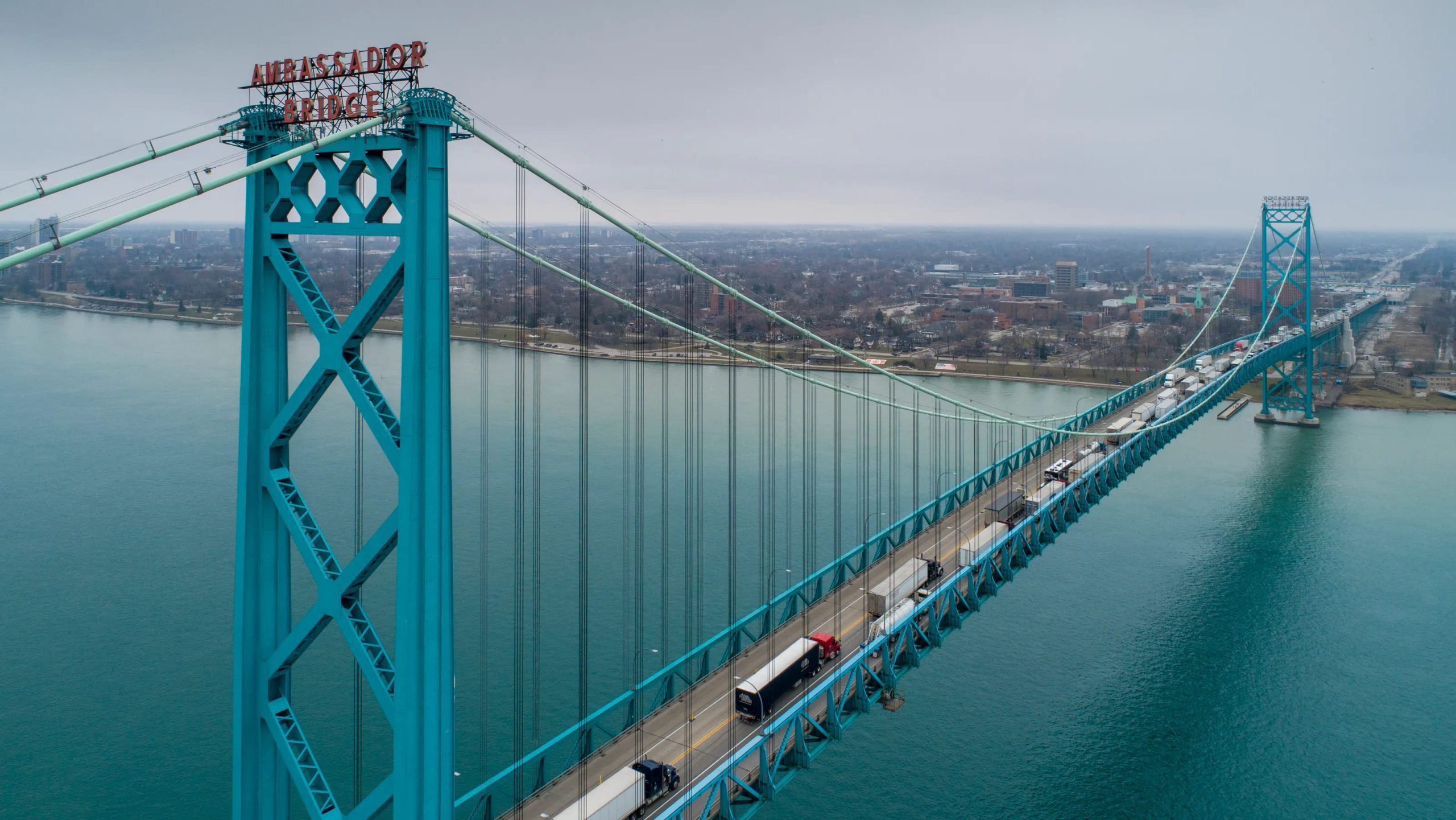The Canadian truck driver who was accused last year of illegally smuggling 10 Vietnamese citizens into the United States in the trailer of his truck was sentenced to three years in federal prison, according to a federal court report.
He pleaded guilty to one count of conspiracy to unlawfully transport foreigners for financial gain, under a plea agreement made in October. The second charge of illegal entry of foreigners was dropped. The charges were filed against him following the August 7 incident, and since August 9, he has been in custody with the U.S. Marshals, according to court records.
The charge to which Al-Kavvaz pleaded guilty involves a mandatory minimum sentence of 36 months in prison.
On Tuesday, a notice was left for his lawyer, with whom contact could not be immediately established.
34-year-old Al Kavvaz is born in Iraq and is a Canadian citizen, owner/operator of a Canadian-licensed truck and trailer, which, according to the plea agreement, transported goods and other products between Canada and the U.S., via a plea agreement.
The agreement states that around 11:30 p.m. on August 7, he crossed the Ambassador Bridge from Canada and submitted an entry request to the U.S. at the Fort Street cargo checkpoint in Detroit. A Customs and Border Protection inspector directed him and his truck to additional screening for a X-ray scan of the truck and an agricultural inspection of his cargo, which was Canadian produce.
At approximately 12:30 a.m. on August 8, CBP officers discovered 10 Vietnamese citizens hiding in a parking lot during a secondary inspection, near where Al Kavvaz's truck was parked. Around 1:25 a.m., the inspection of Al Kavvaz was completed, and he was released with his trailer into the U.S. border zone, according to the agreement.
The report states that about 35 minutes later, officers reviewed surveillance footage and found that Vietnamese citizens exited his truck after he parked at the secondary inspection lot. They contacted his dispatcher and asked him to return to the port of entry, which he did. He was questioned and admitted to illegally smuggling Vietnamese nationals into the U.S.
The agreement states that he also smuggled other people into the U.S. from April 2024 to August 2024, approximately three to four times a month. He agreed that the number of people ranged from 25 to 99. According to a federal memorandum, he received about $500 per person.
The memo states that Vietnamese citizens were interrogated, each describing their journey in Al Kavvaz's truck, and each indicated they paid money to be unlawfully brought into the United States.
It notes that Al Kavvaz said he picked up passengers, sealed the trailer doors with a bolt seal, and departed Windsor headed toward the port of entry in Detroit.
He removed the seal after being directed for additional screening and allowed the passengers to leave the trailer. He claimed he intended to pick them up after the secondary inspection, but did not do so because they were no longer at the lot and left the port of entry, leaving them behind, according to the prosecution's memorandum.
Prosecutors wrote that illegal smuggling of undocumented migrants into the U.S. "is a serious matter."
“In this particular case, individuals without documents were placed in the body of a refrigerated trailer, locked inside (using a bolt seal) when they crossed the border. What would have been their fate if the vehicle caught fire, crashed, or they could not exit for other reasons? What if the oxygen supply ran out? What if it became very cold? No one, except Al Kavvaz, knew they were inside the truck’s cargo area. What if he became ill or was detained and unable to open the truck doors to let them out?” - prosecutors wrote in their memorandum.
It adds that Al Kavvaz’s brother purchased the truck, allowing him to become its owner/operator, and that Al Kavvaz paid his brother about $5,000 USD monthly for the vehicle.
According to the document, Al Kavvaz crossed the U.S. border over 400 times, usually three to five times a week.
Prosecutors also wrote in their memorandum that Al Kavvaz seemed to live a good life and supported his family, but: “Unfortunately, due to greed, and perhaps desperation, he made several very bad decisions.”
According to the memorandum, Al Kavvaz will be deported to Canada after completing his sentence, and has also agreed to the confiscation of his truck and refrigerated trailer.
“The defendant fully acknowledged his responsibility for these incidents and cooperated fully with the court,” the defense memorandum prepared by Al Kavvaz’s attorney, Raymond Atiye, states.
The memorandum notes that Al Kavvaz “is characterized as a hardworking person who exceeds permitted bounds in everything he does, and for everyone he meets,” and that his friends and family know him as “a kind, generous, supportive, loving person who gives everything he can, when he can.”
Al Kavvaz, who is married with two minor children and is the sole breadwinner of his family, “is distressed that his wrongful decision will permanently and negatively affect the lives of his wife and daughters, knowing that he may not be able to see them or help raise them for a long time,” the Atiye sentencing memorandum states.
It states that Al Kavvaz has never had legal issues in the U.S. or Canada, admits that what he did was illegal, and “understands that smuggling people in a refrigerated truck is inhumane and could have led to even worse consequences. He is extremely remorseful for this and deeply regrets his poor decision, which will impact his life forever, as well as the lives of his wife and daughters.”
In the defense memorandum, it is added that Al Kavvaz “was honest and admitted he had done it before, knowing it could lead to a longer incarceration.” It also states that he provided information about the people he transported. The Vietnamese citizens involved in the August incident are not identified in court documents.



